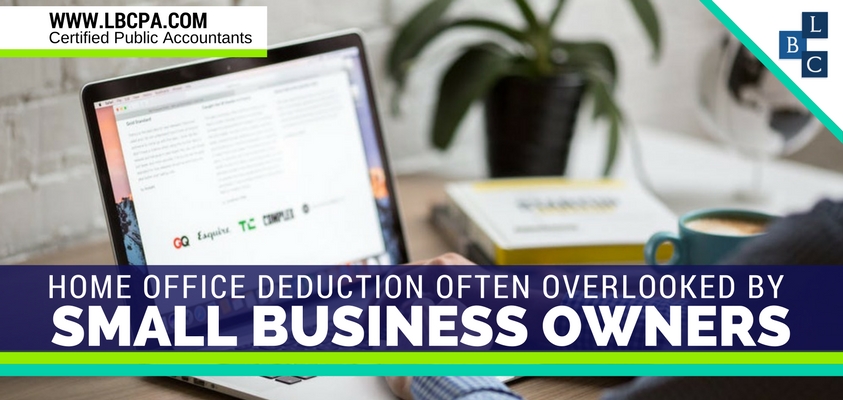LBCPA News 
Click here to go back
Home Office Deduction Often Overlooked by Small Business Owners

The Internal Revenue Service today reminded small business owners who work from a home office that there are two options for claiming the Home Office Deduction. The Home Office Deduction is often overlooked by small business owners.
As part of National Small Business Week (April 30-May 6), the IRS is highlighting a series of tips and resources available for small business owners.
Regular Method
The first option for calculating the Home Office Deduction is the Regular Method. This method requires computing the business use of the home by dividing the expenses of operating the home between personal and business use. Direct business expenses are fully deductible and the percentage of the home floor space used for business is assignable to indirect total expenses. Self-employed taxpayers file Form 1040, Schedule C , Profit or Loss From Business (Sole Proprietorship), and compute this deduction on Form 8829, Expenses for Business Use of Your Home.
Simplified Method
The second option, the Simplified Method, reduces the paperwork and recordkeeping burden for small businesses. The simplified method has a prescribed rate of $5 a square foot for business use of the home. There is a maximum allowable deduction available based on up to 300 square feet. Choosing this option requires taxpayers to complete a short worksheet in the tax instructions and entering the result on the tax return. There is a special calculation for daycare providers. Self-employed individuals claim the home office deduction on Form 1040, Schedule C , Line 30; farmers claim it on Schedule F, Line 32 and eligible employees claim it on Schedule A, Line 21.
Regardless of the method used to compute the deduction, business expenses in excess of the gross income limitation are not deductible. Deductible expenses for business use of a home include the business portion of real estate taxes, mortgage interest, rent, casualty losses, utilities, insurance, depreciation, maintenance and repairs. In general, expenses for the parts of the home not used for business are not deductible.
Deductions for business storage are deductible when the dwelling unit is the sole fixed location of the business or for regular use of a residence for the provision of daycare services; exclusive use isn't required in these cases.
Further details on the home office deduction and the simplified method can be found in Publication 587 on IRS.gov.
If you have any questions regarding accounting, domestic taxation, international taxation, IRS representation, U.S. tax implications of Real Estate transactions or financial statements, please give us a call at 305-274-5811.
Source: IRS






